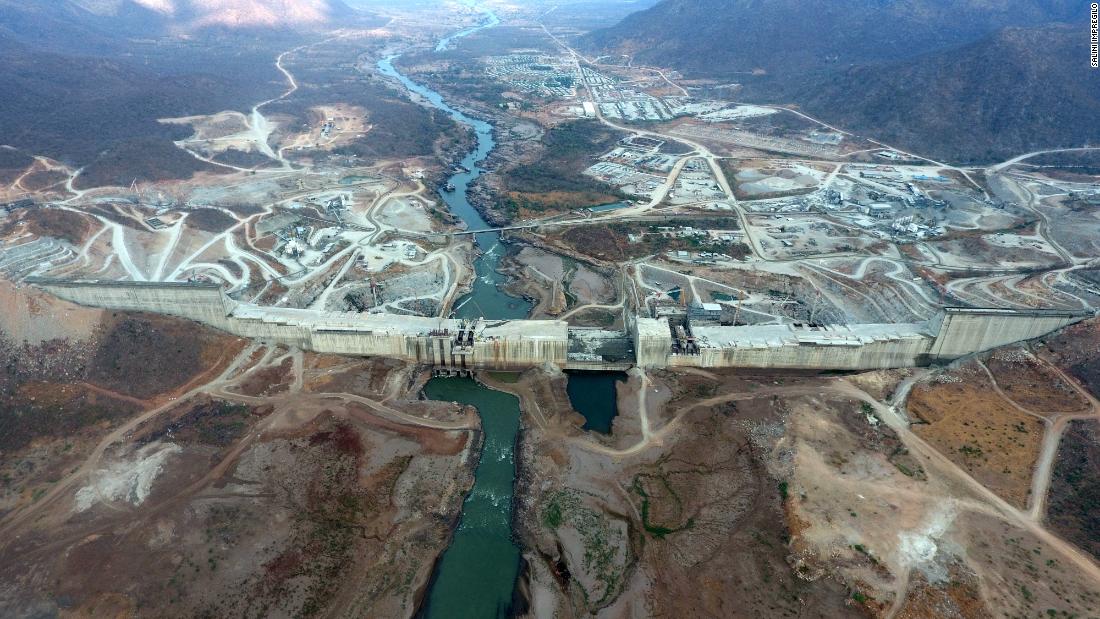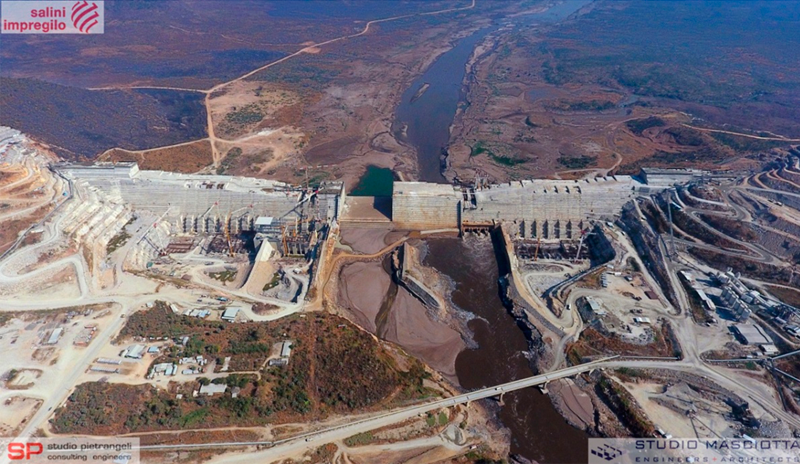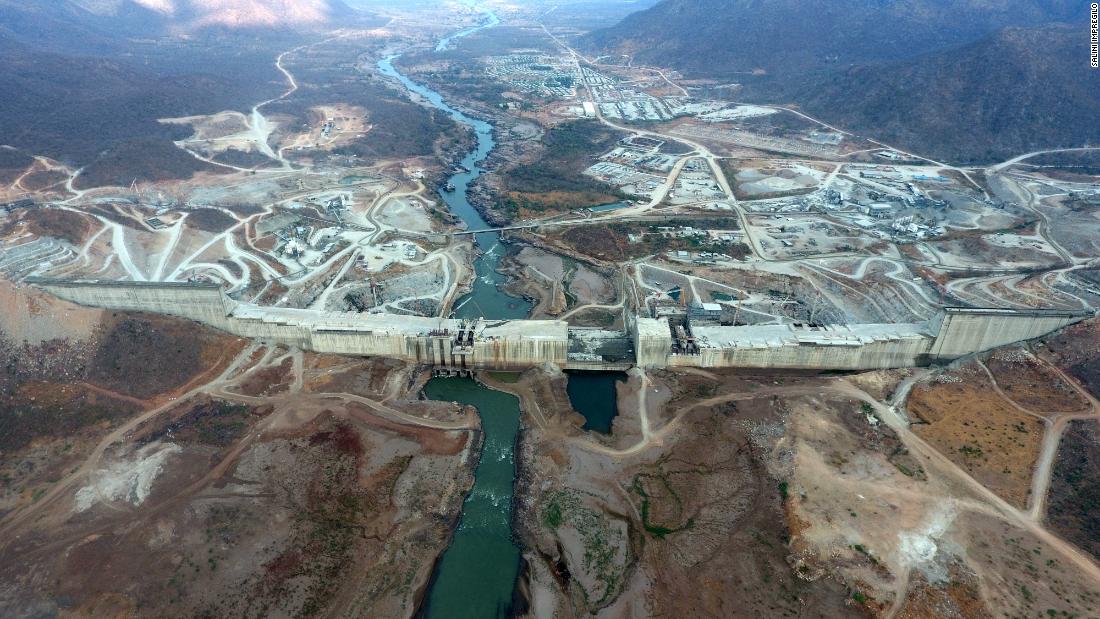Sudan has recently started to state clearly that a legally binding solution is the only way out of the Grand Ethiopian Renaissance Dam (GERD) crisis and Khartoum will not accept a second filling of the dam in the absence of an agreement, noted a diplomat speaking on condition of anonymity.

He added that “Addis Ababa has always found a reason for procrastination and will use its current internal problems in the Tigray region together with mounting tension with Sudan” to continue along the same path, despite Khartoum’s position growing closer to Cairo’s.
That Sudan had now joined Egypt in stating unequivocally that a legally binding agreement is the only way out of the dam impasse is unlikely to shift Addis Ababa’s position, says Abbas Sharaki, professor of geology and water resources at Cairo University. For that to happen, he argues, Egypt and Sudan need to unify their stand across the dam file.
Egypt also reiterated its position on the dam this week when President Abdel-Fattah Al-Sisi repeated Cairo’s longstanding position that a legally-binding agreement is needed to resolve the crisis during a meeting in Cairo with the chairperson of the African Union (AU) Commission Moussa Faki.
Faki was in Egypt to exchange views with Cairo on a range of African issues, including the upcoming AU Summit scheduled for 6 and 7 February, and the commission’s leadership elections which will be held on the periphery of the summit.
Foreign Minister Sameh Shoukri held a separate meeting with Faki during which he stressed Egypt’s continued willingness to engage in serious negotiations in order to reach a legally binding agreement, provided it is matched by a similar commitment on the Ethiopian side.
Speaking to the newly-elected House of Representatives last week about the latest developments over GERD, Shoukri underlined that Egypt will not allow anyone to impose de facto policies or control the Nile. He told MPs that Cairo had managed to involve the international community in the dam file, one result of which was the unprecedented UN Security Council session in June 2020 addressing the dispute.
Last week, Sudan’s acting Foreign Minister Omar Qamareddin told the media that “a binding agreement that regulates the filling and operating of the dam is a must,” a position that Khartoum is increasingly keen to explain to the world. Last week, it held a series of meetings with foreign ambassadors in Khartoum, including representatives of UN Security Council permanent member states. Continuing the diplomatic push, this week Sudan’s Minister of Irrigation and Water Resources Yasser Abbas met the German and Spanish ambassadors to Khartoum.
Late last month, Abbas and Qamareddin visited the Congolese capital Kinshasa where they met with Felix Antoine Cheskidy, president of the Democratic Republic of Congo (DRC). The DRC will take over the chairmanship of the AU from South Africa during this weekend’s AU summit.
During their meeting, the Sudanese officials said Khartoum was ready to continue with the AU-mediated tripartite negotiations. Cheskidy, in turn, said he would discuss the issue with Egypt and Ethiopia in an attempt to close the gap between the three parties.
Political analysts question whether the Congo can succeed in pushing forward a deal on the dam, something South Africa failed to do during last year’s AU-mediated talks. Sharaki is far from optimistic, not least because “the AU lacks a strong mechanism to impose its resolutions its member states.”
Hani Raslan, an expert on African affairs at Al-Ahram Centre for Political and Strategic Studies, argues that however differently Congo manages the file it is unlikely to lead to an agreement.
“Ethiopia has already rejected the mediation of the World Bank and the US. What we now need is concerted international pressure, from the US and influential European states, especially those involved in the building of the dam, like Italy and the UK. If the international will is there, Addis Ababa will have to respond,” says Raslan.
Sudan withdrew twice from the AU-mediated talks called by South Africa, demanding a greater role for AU experts in mediating the dispute, and claiming the current negotiating approach had rendered the talks redundant.
Although both Egypt and Sudan have said repeatedly they cannot accept a second filling before an agreement is reached, Addis Ababa insists it will go ahead and fill the reservoir this summer regardless of whether an agreement is in place.

Ethiopia’s Irrigation Minister Selshi Bekele tweeted this week that “construction progresses as scheduled. Support of Ethiopians for GERD at home and abroad is at its climax. We shall deliver this clean energy for the prosperity of Ethiopia and Africa.”
The first filling of the dam’s reservoir took place last summer despite the absence of a binding agreement, a move that angered Cairo and Khartoum, both of whom saw it as a violation of the Declaration of Principles (DoP) signed in Sudan in March 2015. The DoP states that the three countries must first agree on guidelines and rules for the operating processes of the dam before filling the reservoir.
The dam, 15km from the Ethiopian border with Sudan, has been a source of contention between the three countries since construction began in 2011.


